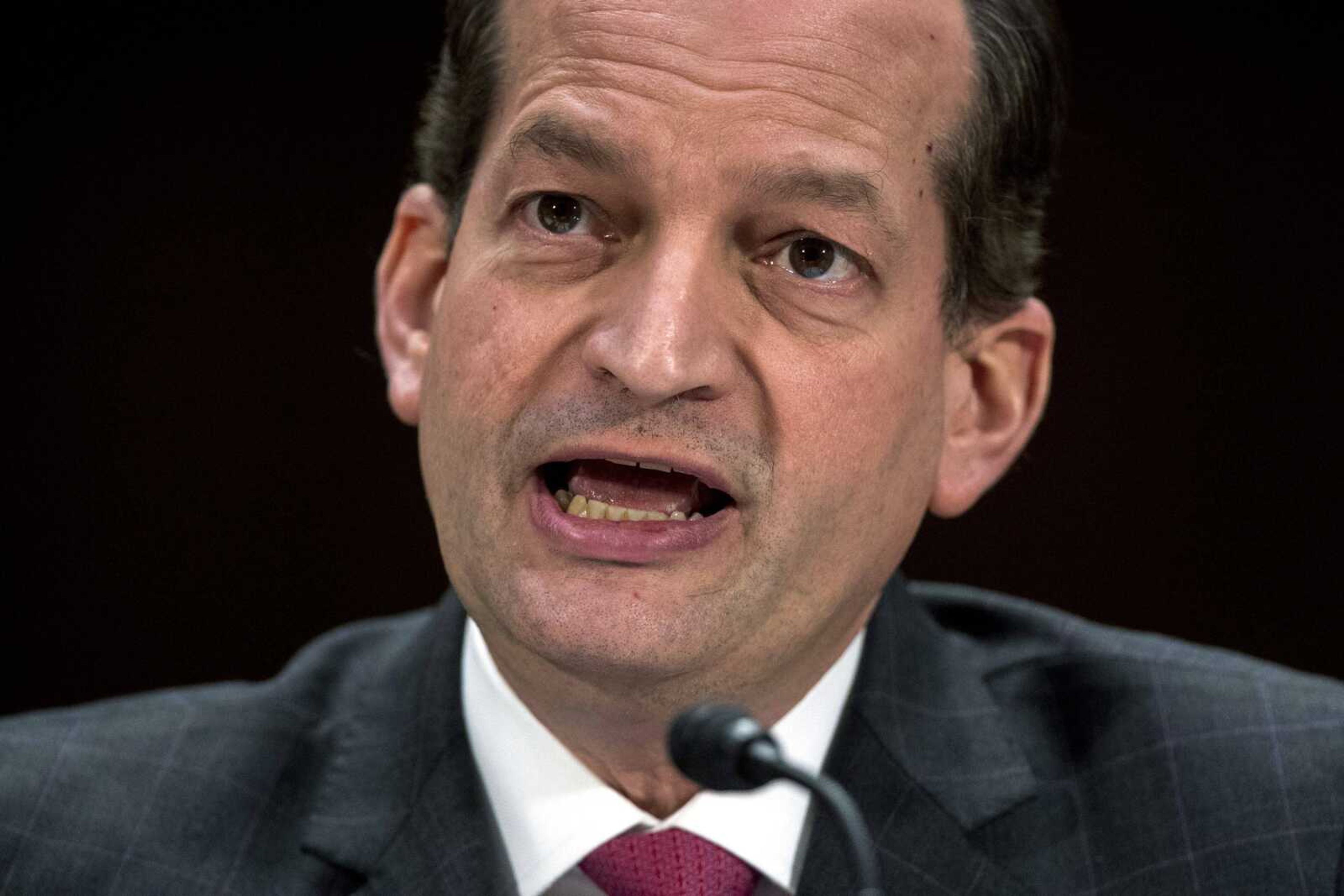Lower costs, fewer benefits in insurance option
WASHINGTON -- The Trump administration's new health insurance option offers lower premiums for small businesses and self-employed people, but the policies are likely to cover fewer benefits. Another caveat: if healthy people flock to the new plans as expected, premiums will rise for those who need comprehensive coverage...
WASHINGTON -- The Trump administration's new health insurance option offers lower premiums for small businesses and self-employed people, but the policies are likely to cover fewer benefits.
Another caveat: if healthy people flock to the new plans as expected, premiums will rise for those who need comprehensive coverage.
President Donald Trump and Labor Secretary Alex Acosta rolled out their final blueprint for "association health plans" on Tuesday, with Trump promising a small-business group "you're going to save massive amounts of money and have much better health care."
Democrats decried it as "junk insurance," and some patient groups warned it could undermine coverage for people in poor health. Republicans and some small-business groups said the administration is providing needed flexibility in the face of rising premiums.
Independent experts said the administration is setting up a parallel insurance market with different rules alongside the Affordable Care Act, the Obama-era law Trump has been unable to repeal.
Estimates by the nonpartisan Congressional Budget Office forecast modest changes, not a seismic shift.
The new plans created under the administration's regulation incorporate the same protections for employees with pre-existing conditions large-company plans now have, Acosta said.
The Labor Department said association plans could be offered to employers in a city, county, state or a metro area, including several states. Plans within a particular industry -- real estate, for example -- can be marketed nationwide. Sole proprietors and their families could join an association plan.
Trump has long asserted promoting the sale of health insurance across state lines can bring down premiums without sacrificing quality. But many experts aren't convinced because medical costs vary greatly according to geography.
Currently, plans for small businesses are required to cover the ACA's 10 categories of "essential" benefits, from prescription drugs to maternity and mental health. Under the new approach, small employers could get coverage with fewer required benefits, said Gary Claxton of the nonpartisan Kaiser Family Foundation.
Ultimately, the idea's success depends on buy-in from plan sponsors, consumers, insurers and state regulators. No major consequences are expected for people covered by large employers.
Acosta cited CBO estimates predicting a modest impact: about 4 million people covered by the plans within five years but only some 400,000 who would have been uninsured, compared to the total number of about 160 million covered by job-based insurance.
After Republicans hit a dead end trying to repeal the Obama health law, the Trump administration has pushed regulatory actions to loosen requirements and try to lower premiums for individuals and small businesses.
"They are providing insurance options that have fewer benefits and fewer requirements than ACA-compliant plans," Claxton said. "That will have a tendency to pull healthier people away because they are more attracted to plans with fewer benefits."
Another major initiative is expected later this summer when the administration eases rules for short-term health plans lasting less than a full year available to individuals. Those plans wouldn't have to cover people with pre-existing conditions but would offer healthy people much lower premiums.
Critics say the administration's approach will draw healthy people away from the health law's insurance markets, raising the cost of coverage, which is subsidized by taxpayers.
About 11 million people are covered by HealthCare.gov and state markets, but the administration's priority is to try to lower premiums for an additional 7 million or so who buy their coverage directly and don't get any help from the government.
State insurance regulators have been concerned about association health plans because similar plans in the past had problems with financial solvency and fraud. Administration officials said Tuesday states and the federal government would share regulatory oversight of the plans, with states retaining their current authority.
The new plans will be phased in, starting in September.
A small business group, Job Creators Network, welcomed the Trump administration's move. President Alfredo Ortiz said it "will create more options, more competition, and lower costs for Main Street small businesses."
Connect with the Southeast Missourian Newsroom:
For corrections to this story or other insights for the editor, click here. To submit a letter to the editor, click here. To learn about the Southeast Missourian’s AI Policy, click here.










